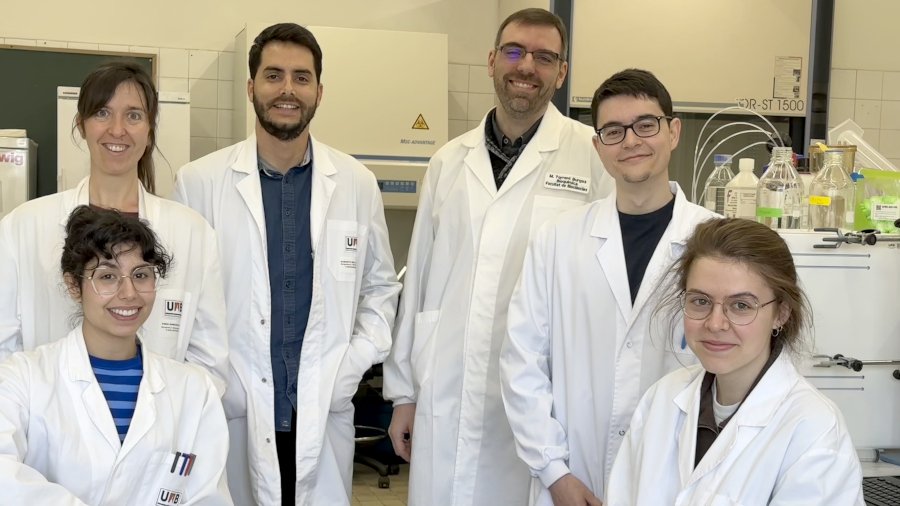New source of natural antibiotics hidden within our own proteins identified
A team of scientists led by the UAB has identified a new type of antimicrobial peptides (AMPs) found in human proteins that are capable of selectively eliminating multidrug-resistant bacteria, particularly of the gram-negative type, responsible for serious hospital acquired infections. The discovery, published in Molecular Systems Biology, could pave the way for more effective treatments against infections resistant to conventional antibiotics.

The study focused on a group of proteins known as glycosaminoglycan-binding proteins (HBPs), which normally aid in processes of blood clotting and inflammation. Using computational tools, the research team coordinated by the UAB explored more than one hundred of these proteins.
“The research is based on a curious observation”, explains UAB Department of Biochemistry and Molecular Biology researcher Marc Torrent, coordinator of the study. “Certain proteins of our bodies that bind to heparin, a molecule regulating process such as blood clotting and inflammation, can also recognise similar structures found on the surface of dangerous bacteria”. Based on this idea, researchers identified and synthesised fragments of these proteins containing antimicrobial potential.
Among the candidates selected, five peptides synthesised in the laboratory showed to have potent activity against gram-negative bacteria such as Escherichia coli, Pseudomonas aeruginosa and Acinetobacter baumannii, all of them responsible for serious hospital-acquired infections.
One of the peptides, which has been named HBP-5, has shown particular promise: not only does it effectively kill bacteria in the laboratory even at very low concentrations, but it also acts as a model of sepsis in infected mice, where the treatment succeeded in significantly reducing the bacterial load in several organs.
"These peptides stand out for their potency and specificity, with a very low toxicity in human cells, indicating that they could be safe as a basis for future treatments", explains Marc Torrent. “This opens the door to a new family of antibiotics derived from the body’s own proteins, with the advantage that they can act specifically against resistant bacteria without affecting healthy cells”, the UAB researcher concludes.
The research, published in Molecular Systems Biology, involved Marc Torrent, Roberto Bello-Madruga, Daniel Sandín and Jordi Gómez from the UAB Department of Biochemistry and Molecular Biology; Javier Valle and David Andreu from the Pompeu Fabra University; María Nieves Larrosa and Juan José González-López from the UAB Department of Genetics and Microbiology and the Vall d’Hebron University Hospital; and Laura Comas and María Ángeles Jiménez from the IQS-CSIC.
Original article:
Roberto Bello-Madruga, Daniel Sandín, Javier Valle, Jordi Gómez, Laura Comas, María Nieves Larrosa, Juan José González-López, María Ángeles Jiménez, David Andreu i Marc Torrent, Mining the heparinome for cryptic antimicrobial peptides that selectively kill Gram-negative bacteria. Mol Syst Biol (2025) https://doi.org/10.1038/s44320-025-00120-6
The UAB, with Sustainable Development Goals
Good health and well-being